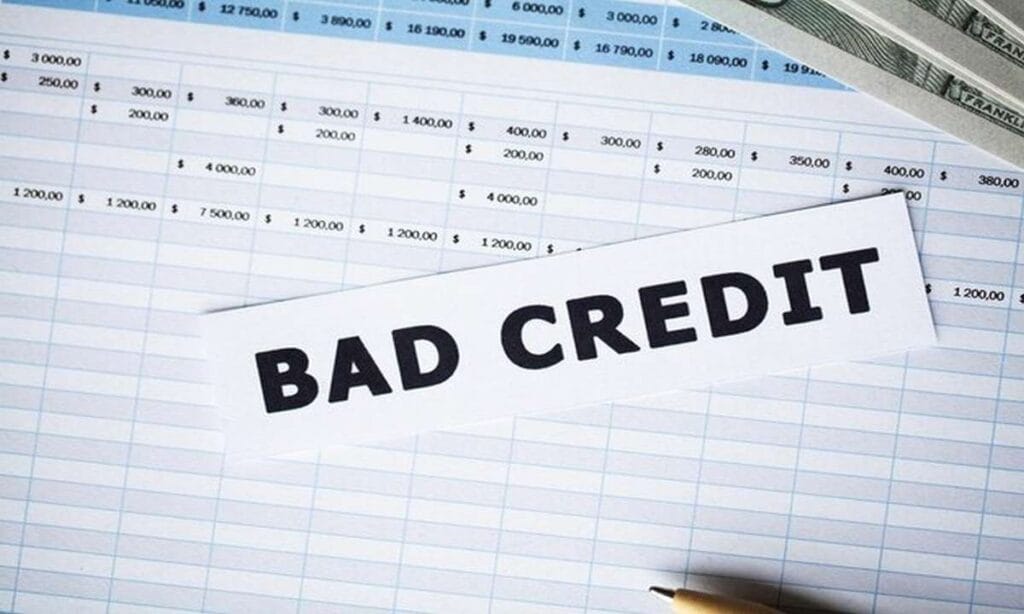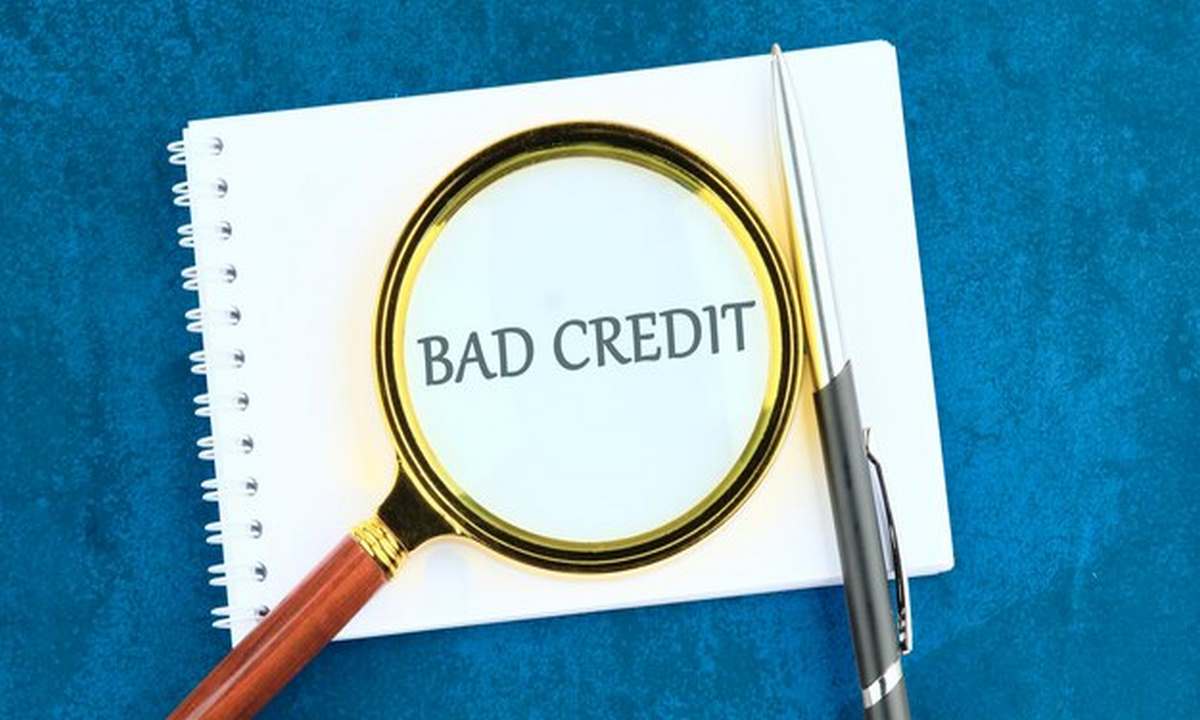Navigating the world of auto loans can be daunting, especially if you have bad credit. This comprehensive guide aims to demystify the process and provide you with the tools and knowledge needed to secure an auto loan in 2024, even with a less-than-perfect credit score. Understanding your options and being prepared can make the journey smoother and help you get behind the wheel of your dream car.

TAKING IN Bad Credit: What It Means and How It Affects You
Bad credit is a term that refers to a low credit score, which can make it challenging to obtain loans, including auto loans. It typically results from past financial missteps such as missed payments, high debt levels, or bankruptcy. A low credit score signals to lenders that you may be a higher risk borrower, which can lead to higher interest rates or even loan denials. However, having bad credit doesn’t mean you’re out of options: it simply means you need to be strategic in your approach.
Defining Bad Credit: FICO Scores and Beyond
A FICO score is a widely used credit scoring model that ranges from 300 to 850. Scores below 580 are generally considered bad credit. Other factors beyond the FICO score, such as your debt-to-income ratio and employment history, also play a role in lenders’ decisions. Understanding these metrics is crucial, as they offer insight into how lenders evaluate your creditworthiness.
Impact of Bad Credit on Auto Loan Approval
Bad credit can significantly impact your ability to secure an auto loan. Lenders may see you as a higher risk, leading to higher interest rates and stricter loan terms. In some cases, you might need a larger down payment or a co-signer to get approved. Despite these challenges, many lenders specialize in bad credit auto loans and can offer tailored solutions to fit your financial situation.

Why Bad Credit Shouldn’t Stop You from Getting an Auto Loan
While bad credit poses challenges, it shouldn’t deter you from pursuing an auto loan. Many lenders understand that financial difficulties can happen to anyone and offer products designed for those with poor credit. By demonstrating financial responsibility and leveraging available resources, you can still secure a loan that meets your needs.
Preparing for Your Auto Loan Journey
Preparation is key when seeking an auto loan with bad credit. Start by understanding your credit report and identifying areas for improvement. Set a realistic budget and gather the necessary documentation. Being well-prepared can increase your chances of approval and help you secure better loan terms.
Checking and Understanding Your Credit Report
Your credit report contains detailed information about your credit history, including loans, credit cards, and payment history. Regularly checking your report allows you to identify and address any errors that might be negatively impacting your score. Websites like AnnualCreditReport.com offer free access to your credit reports from the three major credit bureaus.

Improving Your Credit Score Before Applying
Improving your credit score before applying for an auto loan can increase your chances of approval and help you secure better terms. Focus on paying down existing debt, making timely payments, and avoiding new credit inquiries. Even a small increase in your score can make a significant difference.
Setting a Realistic Budget for Your Auto Loan
Determining how much you can afford is crucial. Consider all costs associated with owning a car, including monthly payments, insurance, maintenance, and fuel. Use online calculators to estimate your monthly payments based on different loan amounts, interest rates, and terms.
Types of Bad Credit Auto Loans
Several types of auto loans are available to individuals with bad credit. Understanding the differences can help you choose the best option for your situation.
Secured vs. Unsecured Auto Loans
Secured auto loans use the vehicle as collateral, which can result in lower interest rates and easier approval. Unsecured loans, on the other hand, do not require collateral but may come with higher interest rates and stricter approval criteria.
Dealer Financing Options
Many dealerships offer in-house financing options for bad credit borrowers. While convenient, these loans often come with higher interest rates. It’s essential to shop around and compare offers to ensure you’re getting the best deal.
Online Lenders Specializing in Bad Credit
Online lenders can be a great resource for bad credit auto loans. These lenders often have more flexible criteria and can offer competitive rates. Research and compare multiple online lenders to find the best option for your needs.
Credit Unions and Community Banks
Credit unions and community banks may offer more personalized service and competitive rates for bad credit auto loans. These institutions often consider your overall financial picture, not just your credit score, which can be beneficial if you have a strong relationship with them.

Finding the Right Lender
Finding the right lender is crucial to securing a favorable auto loan. Consider lenders’ experience with bad credit borrowers, their interest rates, terms, and customer reviews.
Researching Lenders with Experience in Bad Credit
Look for lenders who specialize in bad credit auto loans. These lenders are more likely to offer products tailored to your needs and may have more flexible approval criteria.
Reading Reviews and Customer Experiences
Customer reviews can provide valuable insights into a lender’s reputation and customer service. Look for reviews on independent websites and consider both positive and negative feedback.
Comparing Interest Rates and Terms
Interest rates and loan terms can vary widely between lenders. Compare offers from multiple lenders to find the most competitive rates and favorable terms for your situation.
Pre-Approval: Why It’s Crucial for Bad Credit Borrowers
Pre-approval can give you a clear picture of how much you can borrow and at what interest rate, helping you shop with confidence.
Understanding Pre-Approval
Pre-approval involves a lender evaluating your creditworthiness and providing a conditional loan offer. This process gives you an idea of what you can afford and strengthens your negotiating position.
How to Get Pre-Approved with Bad Credit
To get pre-approved, gather financial documents such as pay stubs, tax returns, and bank statements. Complete the lender’s pre-approval application and wait for their response. Be prepared to explain any negative items on your credit report.
Benefits of Pre-Approval in the Car Buying Process
Pre-approval can streamline the car buying process by giving you a clear budget and allowing you to focus on vehicles within your price range. It also demonstrates to sellers that you are a serious buyer, which can be advantageous in negotiations.
Down Payments: Making Your Loan More Manageable
A substantial down payment can make your loan more manageable by reducing the amount you need to borrow and potentially lowering your interest rate.
How Much Should You Put Down?
While the ideal down payment is 20%, even a smaller amount can significantly impact your loan. Aim for at least 10% to reduce your loan balance and monthly payments.
Sources for Down Payment Funds
Common sources for down payment funds include savings, tax refunds, and trade-in equity from your current vehicle. Ensure that your down payment funds are readily accessible when you’re ready to purchase.
The Impact of Down Payments on Loan Terms
A larger down payment can lead to better loan terms, including lower interest rates and shorter loan durations. It also reduces the overall cost of the loan and helps build equity in your vehicle faster.
Interest Rates and Terms for Bad Credit Auto Loans
Interest rates and loan terms for bad credit auto loans can vary widely. Understanding what to expect can help you make informed decisions.
What to Expect with Interest Rates
Interest rates for bad credit auto loans are typically higher than those for borrowers with good credit. Rates can range from 10% to 20% or more, depending on your credit score and the lender.
Negotiating Better Terms Despite Bad Credit
Even with bad credit, you can negotiate better loan terms. Be prepared to demonstrate your financial stability and consider offering a larger down payment or securing a co-signer to improve your terms.
Understanding Loan Terms and Conditions
Before signing any loan agreement, ensure you understand the terms and conditions. Pay attention to the interest rate, loan duration, monthly payment amount, and any fees or penalties.
Co-Signers: A Potential Solution for Better Terms
A co-signer can help you secure better loan terms by providing additional assurance to the lender.
Who Can Be a Co-Signer?
A co-signer is typically a close family member or friend with good credit who agrees to take on responsibility for the loan if you default. Ensure your co-signer understands their obligations before proceeding.
How a Co-Signer Can Help
A co-signer can improve your chances of approval and help you secure a lower interest rate. Their good credit reassures the lender that the loan will be repaid.
Risks and Responsibilities of Co-Signers
Being a co-signer comes with risks, including potential damage to their credit if you miss payments. Both parties should fully understand the responsibilities and risks involved.
Shopping for Your Car: Tips for Bad Credit Buyers
Choosing the right car within your budget is essential. Consider various factors to make a well-informed decision.
Choosing the Right Car Within Your Budget
Stick to vehicles within your pre-approved loan amount. Consider the total cost of ownership, including insurance, maintenance, and fuel.
New vs. Used Cars: Pros and Cons
New cars come with warranties and the latest features but depreciate quickly. Used cars are more affordable but may require more maintenance. Certified pre-owned vehicles offer a balance between new and used options.
Certified Pre-Owned: A Middle Ground
LOOK Certified pre-owned (CPO) vehicles are used cars that have been inspected and refurbished by the manufacturer. They often come with warranties, making them a reliable and cost-effective option.
The Application Process: Step-by-Step
Understanding the application process can help you navigate it smoothly and avoid common pitfalls.
Gathering Necessary Documentation
Collect all necessary documents, including proof of income, employment history, identification, and any references required by the lender.
Filling Out Your Application Accurately
Provide accurate and complete information on your application. Inaccur
acies or omissions can delay processing or result in loan denial.
Submitting Your Application and Following Up
Submit your application to the lender and follow up to ensure it’s being processed. Be prepared to provide additional information or documentation if requested.
Post-Approval: Finalizing Your Loan
Once approved, you’ll need to finalize your loan by reviewing and signing the loan agreement and arranging for the vehicle purchase.
Reviewing and Signing the Loan Agreement
Carefully review the loan agreement to ensure all terms are as expected. Pay attention to the interest rate, loan term, and any fees.
Finalizing the Vehicle Purchase
Coordinate with the dealership to complete the purchase of your vehicle. Ensure all paperwork is in order and confirm that the loan is properly applied to the purchase.
Maintaining Your Loan and Credit Health
After securing your loan, focus on maintaining your payments and improving your credit health.
Making Timely Payments
Make all loan payments on time to avoid late fees and damage to your credit score. Set up automatic payments if possible to ensure timely payments.
Monitoring Your Credit and Financial Health
Regularly monitor your credit report and financial health. Address any issues promptly to maintain a positive credit profile.
BOTTOM LINE
Securing an auto loan with bad credit in 2024 is entirely possible with the right preparation and approach. By understanding your credit situation, exploring different loan options, and being strategic in your application, you can successfully navigate the process and drive away in a vehicle that meets your needs.
Frequently Asked Questions (FAQs)
What is the lowest score to buy a car?
The lowest credit score needed to buy a car varies depending on the lender and the type of loan. Generally, a credit score of around 500 to 550 might be the minimum required to secure an auto loan, though this can vary. Keep in mind that having a lower score may result in higher interest rates and less favorable loan terms. Source
What is the minimum credit score for a loan?
The minimum credit score required for a loan depends on the type of loan and the lender’s criteria. For many auto loans, a score of around 600 to 650 is often considered the minimum. However, some lenders may offer loans to individuals with lower scores, especially those specializing in subprime loans. Source
Which credit score is used for auto loans?
The FICO score is commonly used by lenders to evaluate creditworthiness for auto loans. This score ranges from 300 to 850 and provides a comprehensive view of an individual’s credit history and risk level. Source
What is a good APR for a car?
A good APR for a car loan typically ranges between 3% and 6% for those with excellent credit. Rates can vary based on the lender, the borrower’s credit score, and the length of the loan term. Lower APRs are available to borrowers with higher credit scores.
What is a subprime auto loan?
A subprime auto loan is a type of loan designed for borrowers with poor credit or a limited credit history. These loans often come with higher interest rates compared to prime loans due to the increased risk to the lender.
What’s the easiest car to get approved for?
The easiest cars to get approved for are usually older, less expensive models or certified pre-owned vehicles. Lenders often prefer these options as they pose less financial risk and have lower loan amounts.
Who is the largest subprime auto lender?
The largest subprime auto lenders include institutions such as Santander Consumer USA and Credit Acceptance Corporation. These companies specialize in providing auto loans to individuals with poor credit.
What is the lowest credit score to get a car?
The lowest credit score to get a car loan is generally around 500. However, securing a loan with such a low score may result in high interest rates and less favorable terms.
What credit score gets the best car loan?
A credit score of 700 or higher is generally considered excellent and can help secure the best car loan rates and terms. Borrowers with scores in this range are likely to receive the most favorable interest rates and loan conditions.
Can I get a loan against my car with bad credit in Australia?
Yes, it is possible to get a loan against your car with bad credit in Australia. Some lenders specialize in providing loans to individuals with poor credit by using the car as collateral. Terms and interest rates may vary based on the lender and your specific credit situation.









